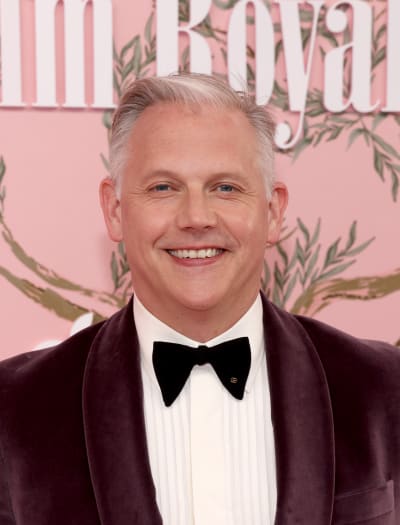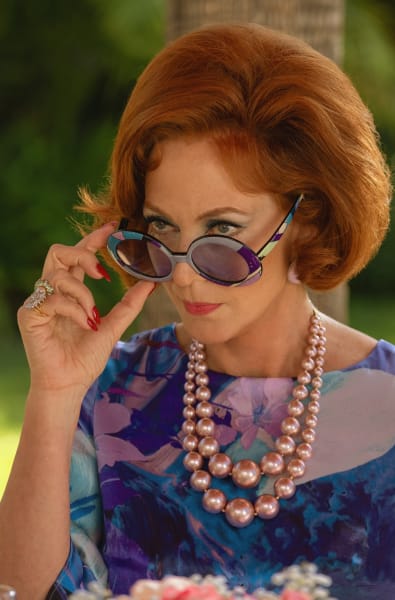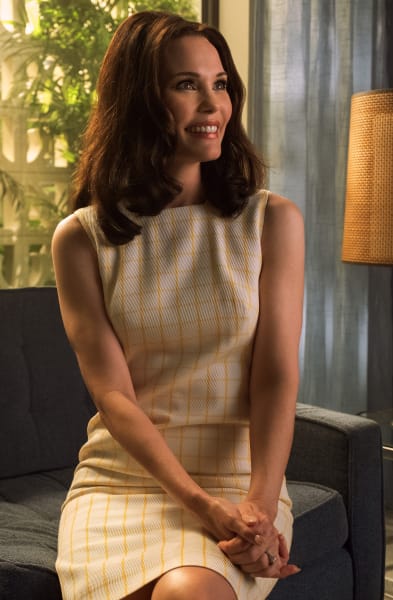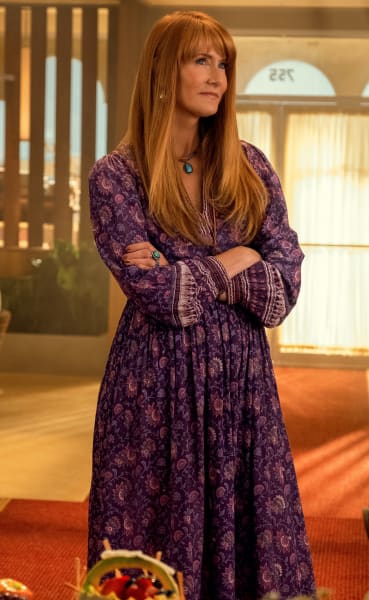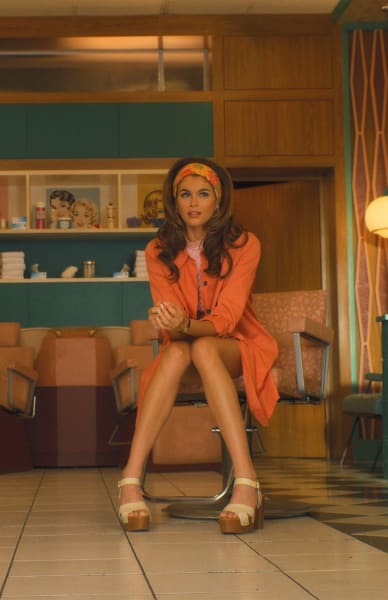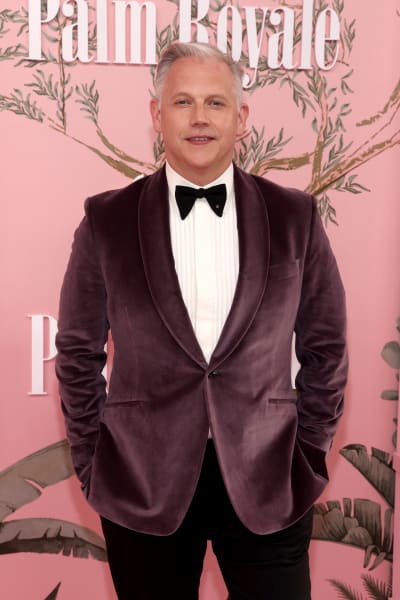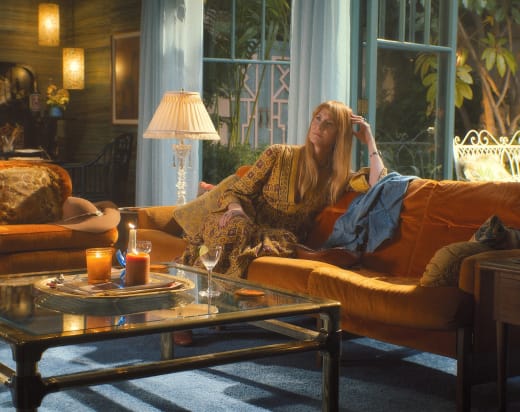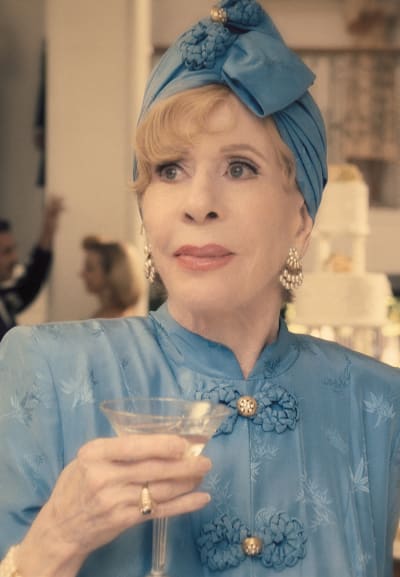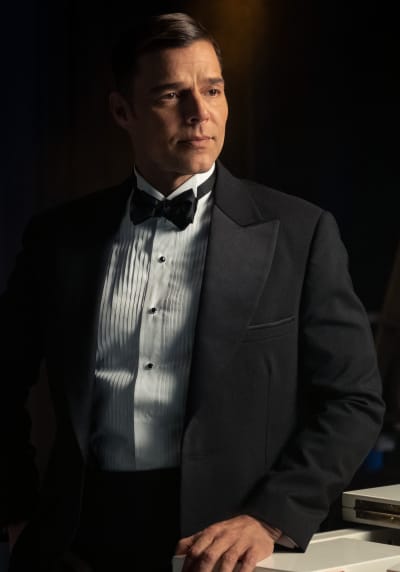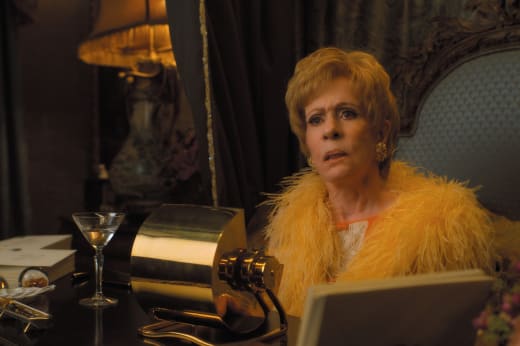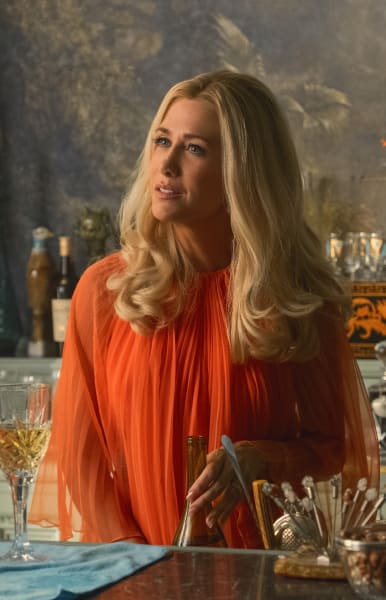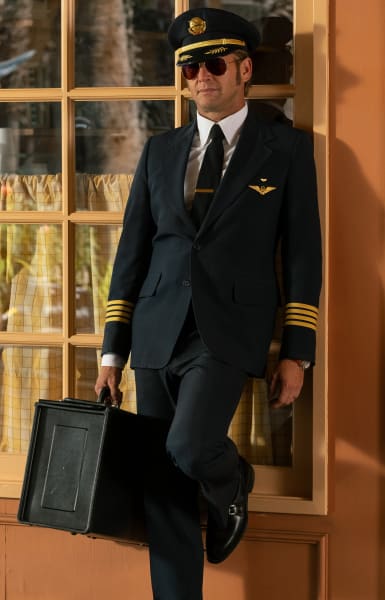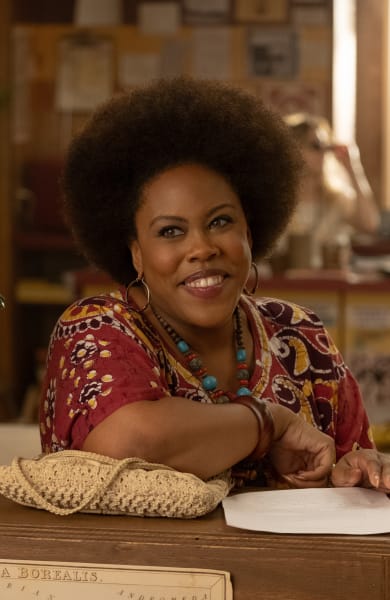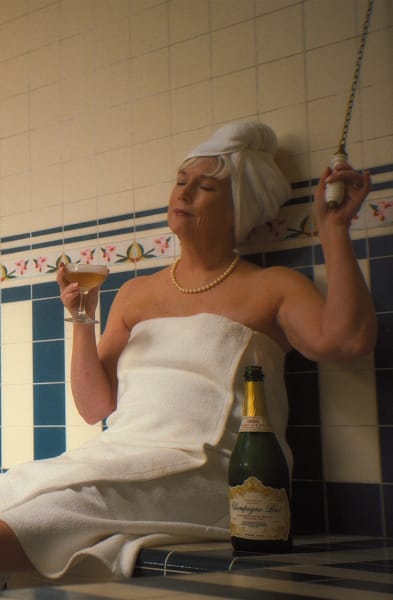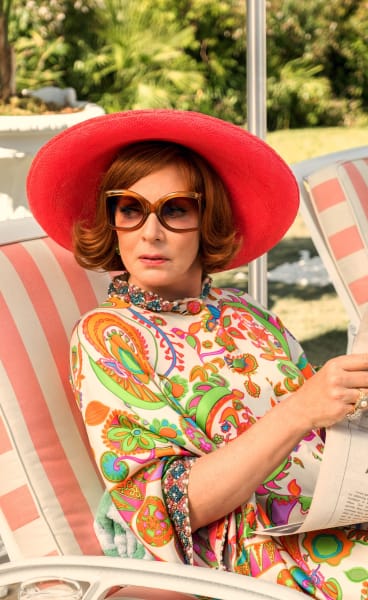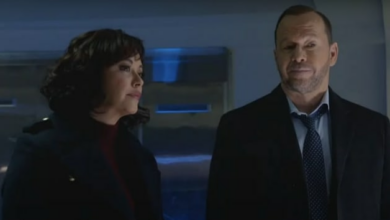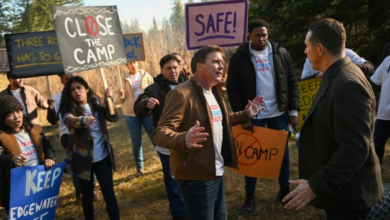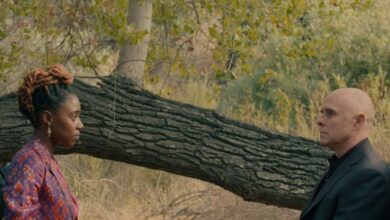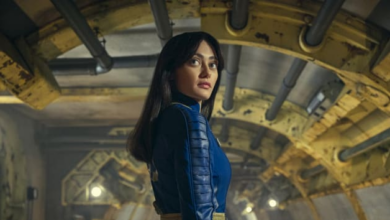Palm Royale’s Abe Sylvia Hopes You Laugh Out Loud and Clap at the End
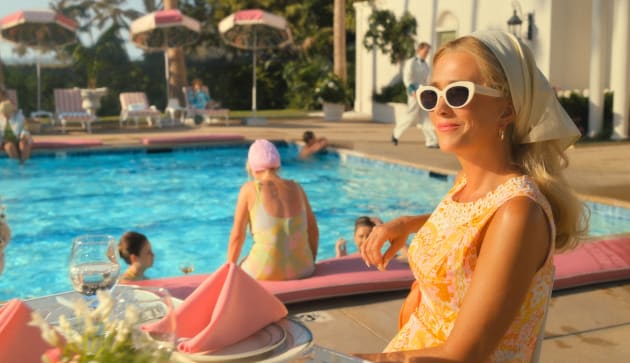
When you begin watching Palm Royale on Apple TV+ tomorrow, you’ll be whisked back to the lively and colorful Palm Springs of the late 1960s courtesy of Abe Sylvia, whose creative mind brought it all together.
Sylvia created, writes, and directs Palm Royale, which almost defies genres. It’s a comedic period piece starring Kristen Wiig as Maxine Simmons, a woman who takes her future into her own hands, desperate to cross the line between the haves and have nots.
As Maxine brings her daring plan to extradorinary life, she discovers that the lives she wants to crash aren’t all they’re cracked up to be.
Sylvia has an unusual heroine in Maxine, who is as aggravating as she is undertandable, and he’s ensconsed her in high society with many vibrant and sly women and men eager to both embrace Maxine and hold her at a distance, depending on their needs at the moment.
We spoke with Sylvia about creating the series, working with such a talented cast of comediannes, and bringing Palm Springs 1969 high society to Apple TV+.
Hi Abe, how are you?
I’m well. How are you, Carissa?
I’m doing really good. Thanks for asking. So first of all, I really enjoyed Palm Royale.
Oh, fantastic.
It was such an unexpected surprise for me. I didn’t know what to expect going in and just, wow. So we’ll get to more of that at the end, but I wanted to give you that up front. Right now there is no other show like Palm Royale on TV.
Oh, that was the goal.
Yeah. You have a lot of shows like that in your past from Nurse Jackie, Hap and Leonard, even The Affair and Dead to Me, they’re all entirely unique shows that you can’t really say they’re too much like something else.
What is it about your journey as a writer-producer that led you to these types of projects and to Palm Royale?
Well, look, those were also just shows I was staffed on that found me. Luckily, those were all shows where the creators were on the lookout for unique voices that could feed their vision. So I was so lucky to be able to work on those shows, but they didn’t necessarily generate from me.
But I do think, certainly now that I’m a showrunner, you are looking for a like-for-like. As you’re building out your writer’s room, who’s going to be additive? Who’s going to have a point of view that’s different than the other people in the room? Who’s going to bring something fresh to the table?
So I was very lucky to get to work on those shows and take the lessons from those writer’s rooms and apply them to my own when I’m building them.
What drew you to the idea idea of creating the show set in the sixties, and what unique elements of that era are you excited to explore?
Well, I’ve always been a great collector of imagery from the period. I don’t necessarily know where that comes from on a cellular level other than I always been fascinated by it, fascinated by the photos of Slim Aarons. I love mid-century musical comedies.
I love the bright colors of the world, the escapism of it, that there’s this bright sparkly past of Americana we’re all trying to get back to, for better or for mostly worse. The nostalgia factor that so many Hollywood musicals, they were there.
They were produced as forms of escapist entertainment for people to forget their troubles.
I think that that’s probably where that comes from, at least when it pertains to the Palm Royale, creating a world where people will want to live for a day and then hopefully pulling the rug and saying, are you sure? Are you sure this is where you want to be?
Yeah. It reminds me a little bit of shows like Desperate Housewives and Why Women Kill. Two obviously very different shows, but they have that same female friendship frenemy thing going on, and you just never know what’s coming next with these women.
What aspects of this comedy, in particular, this type of comedy, do you find most compelling? How did you incorporate that into Palm Royale?
Well, I love good story. I love the unexpected, but inevitable twist. I think so much of television today is based on what’s the big turn at the end. But I do feel like when I watch a lot of television, the turns are unearned, that they’re just there just to shock.
So I’m always as a storyteller looking for the sleight of hand. So when the threads of each individual episode come together, there is a surprising outcome that was inevitable.
My job as a writer is to be a bit of a magician so that when the surprise comes, the audience says, oh, of course, I never saw that coming. But of course, this makes total sense. I don’t know if it comes necessarily from a place of I like things like this, so therefore I want to emulate.
I think I’m always looking for the element of surprise and also to write shows that people want to watch and people want to engage with. I come out of musical comedy, so not only was I fascinated by musical comedies growing up, I spent all my twenties doing Broadway shows.
There is a showmanship, I think, in most everything I do, where it invites the audience as opposed to trying to teach the audience a lesson.
That’s a really good way to put it. I would agree that you accomplished that with this show.
Oh, thank you.
You said you want every episode to have something, a little twist that you see coming but you don’t see coming.
Yes.
It really does happen in this show, which so often, like you said, some twists are just unearned, but there isn’t an unearned twist here.
I’m not a fan of twists just for the twist sake. I’m far more of a character driven person than plot. You managed to make every plot twist perfectly character driven, which is, I think, unique in 2024.
Oh, thank you. That means a lot to me.
My pleasure. How amazing, with this cast, you have just the greatest comedic actresses for this series. What’s it like working with such an embarrassment of riches?
Well, first of all, they’re all wonderful people. So, there’s that part. Certainly, I didn’t know anybody before we started working on the shows.
I only know their work, which is intimidating when you’re be working with icons who you revere, and then you have to play a little bit of a mind trick that says we’re here to work as collaborators. It was really, in so many ways, it was Carol Burnett’s presence and her generosity.
She comes on set and everybody wants to do their best for her. I think for me being like, okay, today I’m going to direct Carol Burnett in something that I’ve written, that is mind-blowing. Then you get to the set and she’s there for you and she sees you completely.
It’s such a tremendous relief and it allowed me to do my best work, unencumbered by my own awe. You can only do your best when you relax into the moment and start to allow things to happen. You can’t let the circumstances where your fandom drives you.
Again, it was her leveling generosity that I think not only brought the best out of me, but brought out the best in so many of my other collaborators on the show, from costumes, to sets, to the other actors, to the writers.
Okay. How hard was it to have a talent like Carol Burnett at your fingertips, only to have her in a coma? Oh my gosh.
Well, I think the fun of having a comedic genius is that you want to put them in a situation that feels impossible, which makes it all the funnier.
So it’s like, okay, the Hollywood production code of the ’20s and ’30s where it’s like, okay, you can’t talk about sex, you can’t show sex, but how do you imply it and still have the audience know what you’re talking about? It allows for more creative ways of getting around the sensors.
We treated Carol’s character’s infirmity the same way. It’s like, okay, make Carol Burnett completely infirm and then watch what she does with that. It’s pretty masterful, I got to say.
Did she ever crack up? I can think back to her show when everybody was always laughing and having such a good time and it actually made it on screen.
What was it like behind the scenes? Especially, since she doesn’t get to talk and she can really spit out great lines, but then she gets to lay there and listen to everybody else.
Well, there’s so much going on in her face, obviously.
Oh, absolutely.
In all of those scenes, she’s so present and taking it all in. I think it’s, honestly, such a metaphor for how people talk in front of the elderly or the sick like they’re not there. Yet she’s so incredibly present, even if no one’s noticing it. Again, that’s just hilarious.
She’s an incredible bon vivant, as you can imagine, and loves being on set and loves being with her fellow actors and loves telling stories.
It was like a theater troupe, like we had run away with the circus. Sometimes I’d be at the monitors and I’d look over and all the actors have their chairs in a circle, and they’re all just enjoying each other and loving each other and telling stories. It was pretty remarkable.
Yes, we would crack each other up in takes and stuff, but everybody’s incredibly professional. Most of that was saved for between takes and then dinner after dinner after we wrapped.
Yeah. Kristen Wiig is probably making a good push at taking on Carol Burnett with her comedic talent. In your opinion, why was she the perfect actress to play Maxine?
Well, Kristen Wiig can do anything, but primarily this show has a very unique tone that it does require actors who can play style and play the period and there’s a real rat-a-tat to the dialogue. So there’s that.
You want somebody that you can root for who’s going to make you laugh, who’s physically doing unexpected things in their body at any given moment, and then can break your heart on top of it.
There’s very few actors who can do all of those things. To me, it’s Charlie Chaplin, Buster Keaton, and Kristen Wiig. They can just ride that line between pathos and humor, and that’s why she was perfect.
How would you describe Maxine in her journey? She’s the center point of the show, obviously. You’re right that she does a little bit of everything. One minute she’s making you laugh, the next minute she’s ripping your heart out. Who is Maxine?
Well, that’s the eternal question of the series. I don’t think Maxine knows. So she’s trying to become part of a system that won’t have her to give herself a sense of identity and belonging that she’s never had.
She defines herself, I think, sadly like so many women of the mid-century, as getting herself worth from her husband and her whole identity, her name. Take it one step further with this character, she’s an orphan. She never had any family.
She’s been trying on different personalities her entire life, just so that she can fit in. In so doing, has this incredible skill set to infiltrate this world, this rarefied world where she thinks her better self must reside.
She gets there only to realize, or for the audience, the audience gets there with her and says, oh my gosh, this world’s actually absurd. Maxine doesn’t necessarily see it. But in trying to maintain her positioning and to be able to rise in the world, she gets herself into deeper and deeper trouble.
The world becomes just that much more absurd as she’s trying to ascend in a place. Let me take it back. It’s like, here’s a character searching for identity and belonging. She finally gets into the place only to realize there’s nothing there.
That’s a credible story for many, many people in this world, especially with the digital age. Everybody is hammering for it.
Yeah. It’s not just a story about somebody who’s trying to attain wealth. It’s about a woman who thinks the better version of herself is out there somewhere and only she can find it. I think most of us can relate to that, especially as Americans.
I think, even though it’s a period piece, it does play to today how badly everybody wants to belong to this vision of what they see as prosperous, happiness, just joy, a joyful life. Then you become a part of it and you’re like, well, this is not at all what I expected.
That’s correct. I thought I would love myself when I got here.
Yeah. A perfect journey for your character. By the end of the season, we see an entirely different side of her, an entirely different side of everybody else. This is listed as still a miniseries, and you just can’t be serious with that. Right?
It’s not a miniseries, it’s an ongoing show.
Oh, thank God. Because that’s what they have on all of the documentation. If there was ever a show that I was clamoring for another episode, it was this. I was literally saying out loud, this better not be the end!
No. That’s a misprint. We’d very much hope for a second season. The show was always designed to be an ongoing show. Yet for some reason, it keeps coming up that it’s a limited, but no, that’s not the case.
Good. I always wonder if they say that stuff now because they’re hoping that people might watch and then just mistakenly get caught up in it and want more or something because of how people are so worried about shows being canceled. It’s just one season, maybe they’ll watch.
Well, I’m a child of the eighties and I love a big cliffhanger and all the soaps that I grew up on, you better believe that that last episode would leave you hanging. That was definitely a guiding principle as we built the finale.
Oh my gosh. Seriously, my mouth was hanging open going, I can’t believe that it’s over. I wanted to just press more please.
Oh, that’s great.
I can’t say that with many shows these days. I really can’t.
Oh, that means a lot. Thank you.
My last question for you is, what do you hope audiences take away from the show? And what do you think sets it apart from everything else on TV?
Well, I think the setting sets it apart. I think the unique look of the show, the unique tone of the show, sets it apart. As much as it’s about 1969 and sort of a sendup of country club culture, which is not a world I’ve ever been in myself, it’s deeply personal, it is deeply aesthetic.
But I’ll also say, I just think I hope people like it. I don’t think that’s a thing that people say often in situations like this when they’re being asked, it’s like, oh, what is the big lesson? Or whatever. It’s like, well, I just hope people like it.
I hope they enjoy themselves. If they see the greater themes or they’re like, oh, I see what they were doing in terms of some cultural conversation, fantastic. But first and foremost, this is a show that sets out to entertain people,
That’s your job. So what an incredible answer, to be honest. Don’t ever apologize for that kind of an answer.
But I do think it’s an answer that’s out of vogue. Right?
Good, God, I just hope people like it.
I hope people clap at the end, and I hope people laugh.
Carissa Pavlica is the managing editor and a staff writer and critic for TV Fanatic. She’s a member of the Critic’s Choice Association, enjoys mentoring writers, conversing with cats, and passionately discussing the nuances of television and film with anyone who will listen. Follow her on X and email her here at TV Fanatic.


